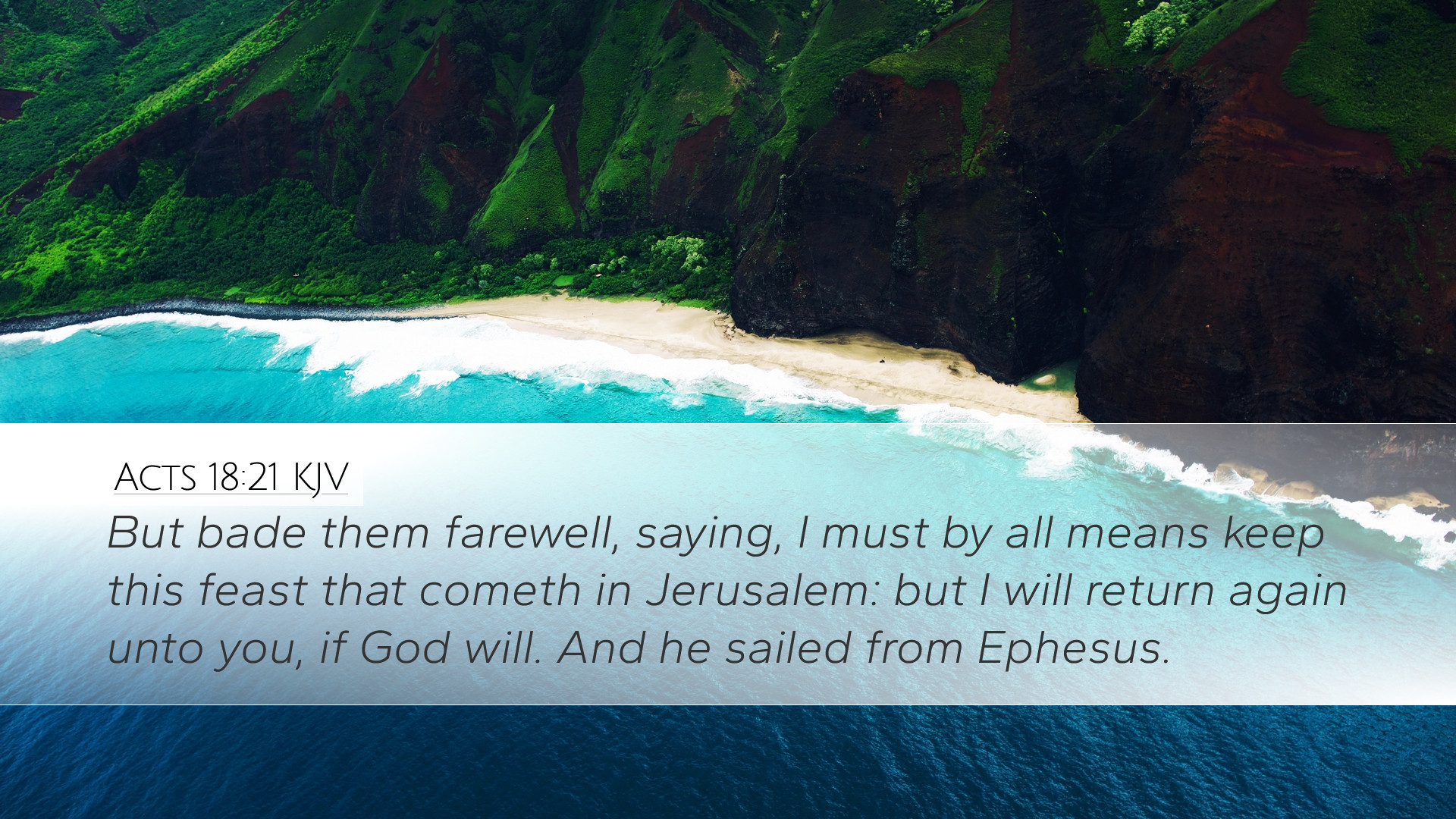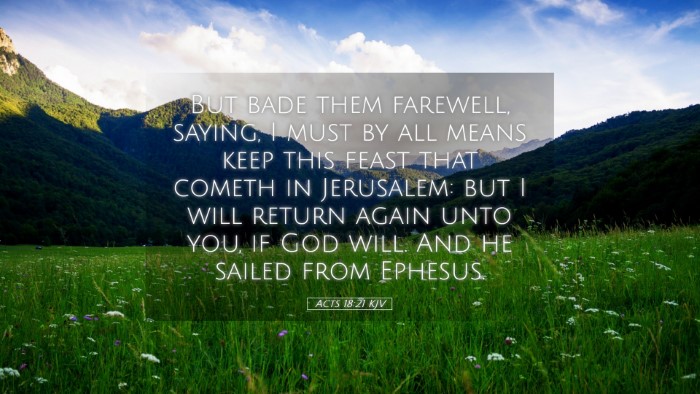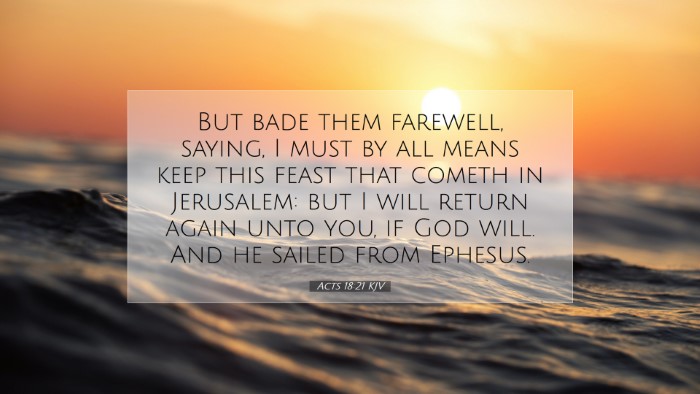Commentary on Acts 18:21
Bible Verse: "But bade them farewell, saying, I must by all means keep this feast that cometh in Jerusalem: but I will return again unto you, if God will. And he sailed from Ephesus."
Introduction
The verse Acts 18:21 presents a key moment in the ministry of the Apostle Paul. It encapsulates themes of commitment, divine guidance, and the significance of communal worship. The commentaries from Matthew Henry, Albert Barnes, and Adam Clarke provide a rich tapestry of insights into this passage, encouraging deeper reflection for pastors, students, theologians, and scholars alike.
Verse Analysis
The text reveals Paul's intention to participate in a religious feast in Jerusalem and implies a strong sense of obligation to adhere to Jewish customs. This understanding invites a closer examination of the historical and cultural background of the early church and the foundational aspects of Paul’s ministry.
Contextual Background
According to Henry, this phase of Paul's ministry follows his time in Ephesus where he had established a significant outreach. His decision to attend the feast reflects his Jewish heritage and its ongoing importance in his life despite the burgeoning Christian community.
Paul's Farewell
Paul's farewell to the Ephesians indicates the emotional weight of his departure. Barnes notes that the farewell was indicative of strong relationships formed and the necessity of aligning his religious observance with communal worship in Jerusalem. There is a poignant acknowledgment of the fellowship shared with the believers, highlighting the personable nature of Paul’s ministry.
Divine Guidance
Central to this verse is Paul’s declaration, "if God will," which reflects an understanding of divine sovereignty. Clarke emphasizes this phrase as a humble acknowledgment of God’s ultimate authority over Paul’s plans. It serves as a reminder for all believers about the importance of seeking God’s direction in their endeavors.
Importance of Worship
The feast mentioned is likely associated with the Jewish Passover or other significant religious observances, demonstrating the continuity of Paul’s Jewish roots. Henry elaborates on how this illustrates the transition from the Old Covenant to the New Covenant, as Paul navigates his dual identity. This duality serves to communicate the gospel of Christ to Jews and Gentiles alike, emphasizing inclusivity within the emerging church.
Sailing from Ephesus
Paul’s departure from Ephesus represents a transition in his ministry. Clarke notes that Ephesus was a hub for early Christianity and Paul's engagement there prepared the ground for future evangelistic efforts. This departure, though seemingly physical, signifies a spiritual movement towards fulfilling God's mission. The mode of transportation and the journey itself highlight the necessity of travel in the expansion of the early church.
Theological Implications
- Christian Identity: Paul’s commitment to Jewish traditions in the face of a growing Christian faith presents a model for addressing cultural identity within religious contexts.
- The Role of Community: The emotional aspect of the farewell underlines the importance of community within the faith walk, emphasizing that ministry occurs in relational contexts.
- Openness to God’s Will: The phrase "if God will" serves as a theological anchor for believers to affirm their plans while remaining open to divine redirection.
- Significance of Worship: The act of keeping the feast underscores the importance of communal worship and remembrance in the life of a believer.
Conclusion
Acts 18:21 invites rich exploration into the life of Paul and the early church. The engagement of public domain commentaries sheds light on the complexity of Paul’s character and mission. His journey signifies a blend of faith and practicality—moving forward in ministry while honoring traditions. This passage offers invaluable lessons on community, worship, and the need for divine guidance in the life of every believer.
As pastors, students, theologians, and scholars reflect on this verse, may they find encouragement to balance cultural heritage with the call of the Gospel, ensuring that their ministries remain vibrant and grounded in the rich history of faith.


